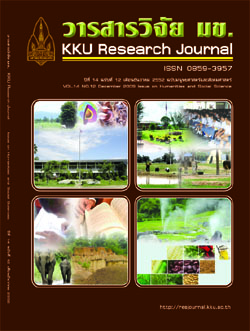Cooperating teacher roles during student teacher teaching practices
Main Article Content
Abstract
The cooperating teacher has a significant impact on the student teacher's attitudes and teaching behavior. This research, which is a part of a larger research project entitled 'A Student Teacher Supervision Model: Enhancing Professional Development and Mentoring', aims to study the role of cooperating teachers and their satisfaction with this role. The subjects included 27 cooperating teachers, 7 university supervisors, and 33 student teachers. The data were obtained through a combination of questionnaires and interviews. Analytic induction was used to analyze qualitative data. The results from the study showed that the cooperating teachers express the roles of coordinator, supporter, adviser, observer and feedback provider by giving student teachers orientation, support, guiding instruction, observations, and feedback, and found their roles to be satisfying. This study recommends that the enhancement of a cooperating teacher's professional development requires collaboration between the teacher education institute and the associate school.
Article Details
References
Borko, H. and Mayfield, V. 1995. The roles ofcooperating teacher and university supervisorin learning to teach. Teaching and TeacherEducation, 11, 501-518.
Butt, G. 1994. The role of the higher educationtutor.In A. Williams (Ed.), Perspectives onPartnership: Secondary Initial TeacherTraining. London: Falmer.
Connor, K. et al. 1993. Cooperating teachereffectiveness and training: two views. Actionin Teacher Education, 25(2), 72-79.
Copas, E.1984. Critical requirement for cooperatingteachers. Journal of Teacher Education,35(6), 49-54.
Copeland, W. D. 1980. Affective dispositions ofteachers in training toward examples ofsupervisory behavior. Journal ofEducational Research, 74(1), 37-42.
Enz, B. and Cook, S. 1992. Student teachersû andcooperating teachersû perspectives ofmentoring functions: harmony or dissonance?ERIC Document Reproduction Service,No. ED 350 291.
Feiman-Nemser, S. and Buchmann, M. 1987. Whenis student teaching teacher education?Teaching and Teacher Education, 3(4),255-273.
Glickman, C.D. and Bey, T.M. 1990. Supervision.In W.R. Houston (Ed.), Handbook ofResearch on Teacher Education (1st ed.,pp. 549-566). New York: MacMillan.
Grimmett, P. and Ratzlaff, H. 1986. Expections forthe cooperating teacher role. Journal ofTeacher Education, 28(6), 41-50.
Hargreaves, D. 1994. The new professionalism: thesynthesis of professional and institutionaldevelopment. Teaching and TeacherEducation, 10(4), 423-438.
Karmos, A. and Jacko, C. 1977. The role of significantothers during the student teaching experience.Journal of Teacher Education, 28(5), 51-55.
Koster, B., Korthagen, F.A. and Wubbels, Th. 1998.Is there anything left for us? Functions ofcooperating teachers and teacher educators.European Journal of Teacher Education,21(1), 75-89.
McIntyre, D.J., Byrd, D. and Foxx, S. 1996. Fieldand laboratory experiences. In J.Sikula (Ed.),Handbook of Research on TeacherEducation. New York: Macmillan.
Merriam, S. 1998. Qualitative Research and CaseStudy Applications in Education(Rev.edition). San Francisco, Californaia:Jossey-Bass.
Punch, K. 1998. Introduction to Social Research:Quantitative and Qualitative Approaches.London: Sage.
Rikard, G. and Veal, M. 1996. Cooperating teachers:Insight into their preparation, beliefs, andpractices. Journal of Teaching in PhysicalEducation, 15, 279-296.


